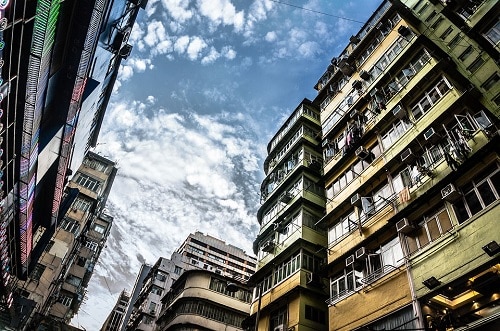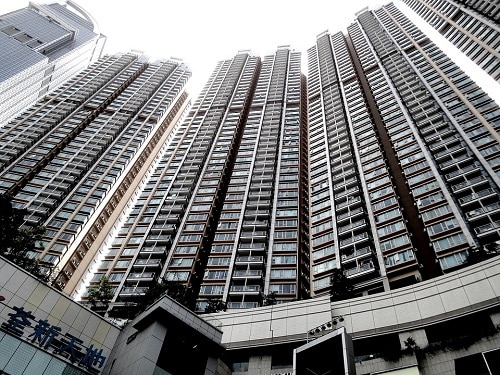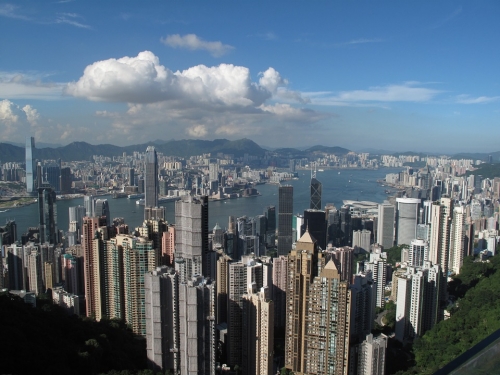In Hong Kong, the east meets the west, and at the root of its towering skyscrapers and fast paced life lie deeply held traditional values. Expats will find familiarity in certain aspects, while some may appear entirely foreign to them.
In general, expats have found it easy to live in Hong Kong over the years, due to its extensive infrastructure and availability of amenities. Hong Kong also has a modern healthcare system, efficient public transport and an excellent standard of schooling. The city is also safe, and offers a variety of options for entertainment.However, Hong Kong now ranks 28th in survey of the ‘most livable places in Asia’. This can be attributed to various factors such as the city’s poor air quality among others. Reports show that an increasing number of workers are returning to their home countries after finishing their temporary assignments. Many are also relocating to other Asian destinations, such as Singapore, in search of new career opportunities. Here are some reasons why Hong Kong is slowly losing its allure among expats.
Cost of living
Expats will find that the cost of living in Hong Kong is rather high. The city ranked second in Mercer’s Cost of Living report. The property market in Hong Kong is overinflated, which makes accommodation expensive. Hong Kong also imports most of its products and commodities, so even everyday expenses are quite high.
Expats who have managed to secure high salaries may be able to afford these costs, and will also be able to enjoy the high standard of living. But for most, housing is expensive and a large portion of an expat salary goes into acquiring accommodation. There are some small, Chinese-style apartments that come at reasonable rates, but they may be too small for expats who have moved to Hong Kong with their families.
While public transport is reliable and affordable in Hong Kong, owning and maintaining a car can be expensive affair. Most expats who live in central locations find that they don’t really need a car, though. Taxis in Hong Kong are cheap and also easily available.
Many expats who find that Hong Kong is too expensive a place to live in head to other Asian destinations, such as Singapore. While the accommodation and daily living costs in Singapore are still high, things are still cheaper than in Hong Kong. Singapore’s public transport is also much cheaper. Education is subsidized, saving expats from having to spend on high fees on international and private schools. Singapore also has a comprehensive healthcare system, which involves minimal contribution from residents. Groceries are almost 12 percent cheaper than they are in Hong Kong.
Accommodation
House rents are lower in Singapore due to the laws of supply and demand. Singapore has a smaller population and is a smaller city-state than Hong Kong, and the government has taken adequate measures to control the demand for housing. Due to cooling measures, a property bubble that would place a strain on the income of Singaporeans has been prevented. In Hong Kong, the average property costs are more than fourteen times the average salary, while in Singapore the figure is just five times the average salary. Rental apartments are known to cost 16 percent less each month than rental rates in Hong Kong.
Rental rates in Hong Kong can be exorbitant, while space is small. But the taxes are low, so it is possible for some to afford the high rental rates. Another gripe expats may have in Hong Kong is that the newer flats tend to add in as many rooms as possible, making them feel very cramped. This is especially true of the newer buildings.

The older buildings have more space and larger rooms, but the apartments are old and outdated. They are also likely to not have many facilities. In Hong Kong, there is a tendency for real estate agents to show potential clients all the apartments they have, even though they may not fit into an expat’s budget. Expats will have to be clear on their requirements to avoid dragging out the process. Estate agents may also show the less appealing apartments first in the hope that the client may choose one of them.
Language barrier
Much of the population in Hong Kong speaks Cantonese, English and Mandarin. This can make it difficult for expats to learn Cantonese, as the locals may insist on communicating in English with anyone who looks like a foreigner. Cantonese is also difficult to learn. Mandarin, on the other hand, is good for those who want to learn Chinese, and comes in handy when communicating with acquaintances or business contacts from mainland China.
Those who want to get by with only English may find it difficult as Mandarin is being spoken more and more in business settings. Singapore may follow the same path in time, but for now it still uses English as the official language of business. In fact, it is more convenient to learn Mandarin in Singapore as schools make it a priority to produce fluently bilingual students, giving expat children a head start in learning the language. Adults, too, are able to easily find Mandarin teachers in Singapore.
Air pollution
One of Hong Kong’s biggest concerns is the quality of air. The city’s air pollution comes from its vehicles, marine vessels and power plants. This leads to street-level pollution as well as regional smog. Much of the street-level pollution comes from diesel vehicles, mainly trucks, buses and light buses, while the smog arises from industrial and power plants in the city and the Pearl River Delta.
Air pollution is considered to be a serious issue. For nearly 30 percent of the year, visibility is below eight kilometers. The number of cases of asthma and bronchial conditions has increased in recent times due to the poor air quality. A study conducted in the Netherlands showed that the mortality rate due to vehicular pollution could be twice as much near roads that carry heavy traffic. A large part of the population lives and works near busy roads, resulting in a huge health risk to residents.
According to the Hong Kong Medical Association, air pollution can aggravate asthma, affect lung function and increase the risk of death due to cardio-respiratory conditions. A local investigation by health experts also found that 90,000 hospital admissions and 2,800 premature deaths a year could be attributed to roadside pollution levels. This also has an economic impact as the poor quality of air can cost Hong Kong a lot of money in hospital admissions and reduced productivity. Considering the seriousness of the problem, it’s no wonder an increasing number of expats are leaving Hong Kong.
Singapore, on the other hand, is cleaner and healthier. While the city-state also has its problems with air pollution, it is not as serious as in Hong Kong. The government has taken considerable measures to handle the problem. There are stringent regulations placed on transport and industry. A large percentage of the smog that is visible above Singapore arises from forest fires originating from the neighboring countries of Indonesia and Malaysia. Singapore also has high fines to protect against littering on the streets.
Competition
Hong Kong has an incredibly competitive job environment, because of which it attracts younger, ambitious expats. Businesses and organizations tend to demand a great deal from their employees and almost display a hire-and-fire approach. Those who fulfill these high expectations are rewarded well. This kind of business environment places great emphasis on hard work and risk-taking.
The banking industry, in particular, is highly competitive and aggressive. Younger expats may prefer such an environment, but the nearly round-the-clock professionalism may lead to excessive stress for older expats. For this reason, a number of senior-level professionals such as managers, directors and board members are leaving Hong Kong for positions in Singapore where the salaries are just as high, but the work timings and expectations allow for a better work-life balance.
Safety
Another reason why expats are leaving Hong Kong for Singapore is safety and security. Singapore is one of the safest cities in the world. There have been no accounts of gang-related violence in Singapore since the 1980s and most of the city’s streets are safe even after dark. The security levels can be attributed to a culture of extensive litigation, which is strictly enforced. There is a death penalty for possession of drugs, offences related to firearms and kidnapping. For milder offences, there are hefty fines or compulsory community work. There are also strict punishments for spitting on the street, jaywalking, littering and even eating on the subway.

Also, the Singapore police cannot be bribed to look the other way. Some of the other modes of punishment may appear surprising to people from other countries: for instance, Singapore also uses caning or whipping of the hands as punishment for those who engage in vandalism and overstay their visas. All of these measures have led to the transformation of Singapore to a safe, clean and robust economy.
Schooling
Hong Kong has a difficult school enrolment system, another reason why expats may be leaving the city. Public schools are fully government-funded and provide free education to all. English is the language of instruction in only a few schools. It becomes necessary to research these schools since many local schools claim to be English schools, but actually conduct classes in Cantonese. Schools in Hong Kong are highly competitive, and as a result private tutoring is common.
Singapore is an attractive destination to expats even with regard to schooling, since the system allows families to have all their children in the same school. The schools also adopt English as the medium of instruction. Singapore’s universities are well reputed and are counted as among the best in the world. Singapore’s school system is so effective that the majority of expat children study at the state-run schools instead of the more expensive international schools. In Hong Kong, another drawback is that there are a limited number of places open at international schools.
Apart from Singapore, other cities that appeal to expats include Shanghai and Tokyo. In fields such as natural resources, gas, oil and manufacturing, many of the hubs are based in Southeast Asia. The economies of countries like Indonesia, Thailand and Malaysia are growing steadily. Even though many companies are headquartered in Singapore, there are local offices opening across the territory. Some expats have even made the move to Vietnam where the cost of living is low and good expat packages ensure a high quality of life.
Due to an increase in foreign investment, Indonesia’s economy is booming, and is able to offer lucrative job opportunities to expats. The Philippines is another Southeast Asian country that has become an attractive expat destination due to a new government that is able to favorable to foreign businesses. Thailand has jobs to offer to those in the natural resources sector, while Mongolia is opening up its extensive mining reserves. Malaysia does have a considerable expat population, but the government has restricted the number of foreign nationals that are permitted per number of local workers.
While older expats are leaving Hong Kong in search of better job opportunities, expat packages, and a better quality of life, many of the younger generation of expats in their 20s and early 30s still find Hong Kong appealing. Hong Kong has an edge, much like the big cities of London and New York. Younger expats are drawn to this energy, as well as the competition and aggressive nature of the banking market. Hong Kong has always enjoyed the reputation of being the ideal destination for young Western bankers. Add to this a new law that urges banks in Singapore to employ more locals, and Hong Kong’s appeal only increases for young expats.
Have you lived in Hong Kong? Share your thoughts in the comments below, or answer the questions here to be featured in an interview!

